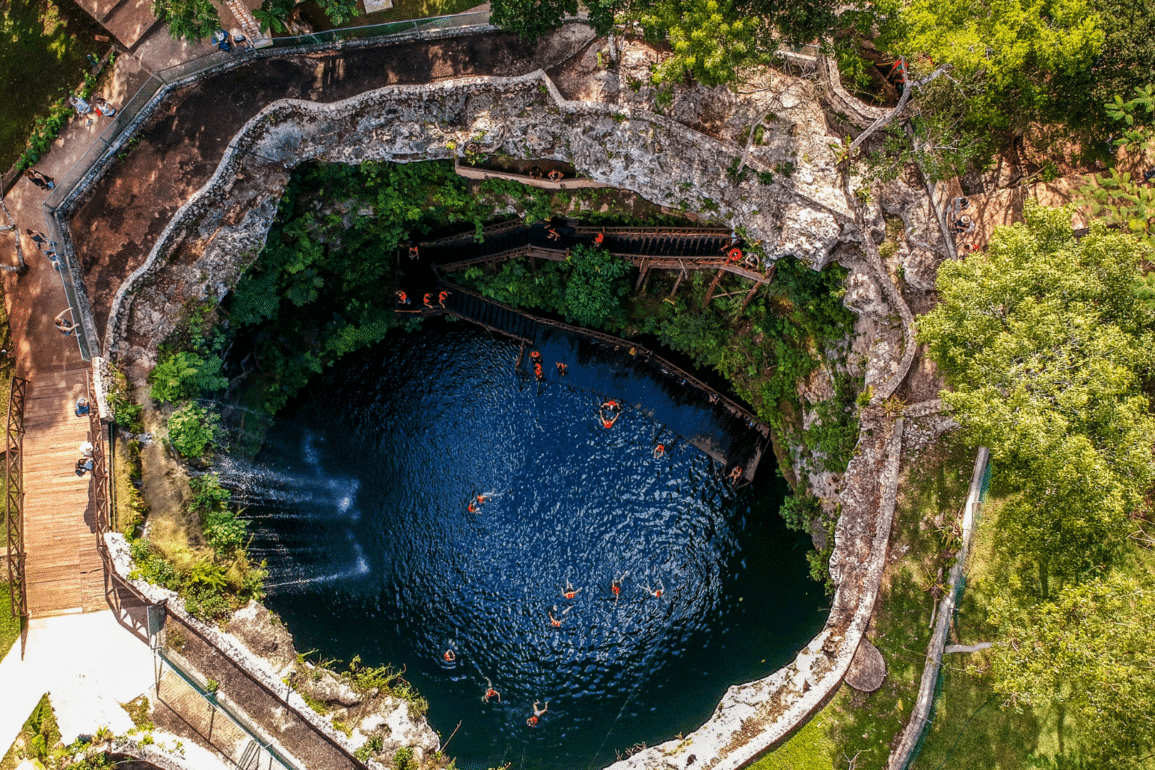According to the latest report by specialists from the National Institute of Ecology and Climate Change, INECC, Mexico is one of the countries most vulnerable to climate change, due to its geographical characteristics, socio-economic conditions, and its degree of susceptibility or inability to cope with its impacts.
The increase in temperature, accompanied by extremely hot days such as those we experienced a few months ago around the world, and a decrease in very cold days and frosts, have led to an increase in cyclones of category 3 or more and more severe droughts, which together have affected 90% of the country’s territory.
According to the Climate Change Mitigation and Adaptation Commitments for the period 2020-2030, in Mexico, climate change has caused human losses and high economic and social costs. Between 2001 and 2013 alone, an estimated 2.5 million people were affected by meteorological phenomena, while the economic costs amounted to 338.35 billion pesos.
In addition, the negative consequences are increased by social conditions such as poverty in various sectors of the population and environmental degradation affecting their communities, which increases their vulnerability.
Important efforts have been made, involving academia, various public and private sectors, civil society organisations, international organisations and communities throughout the country. But much remains to be done to achieve sound assessment, mitigation, adaptation, green growth and environmental health in Mexico.
Pope Francis, in his encyclical Laudato Si, makes a call to reflect, to stop in this current maelstrom, to turn our eyes towards an integral and human ecology, where we put at the centre of the discussion and action, those who for centuries have taken care of our home, the native peoples, who have suffered the humiliations and abuses of the ambitions of a few, and those who profess a deep respect for mother earth, without losing themselves to development but truly sustainable and even for all.
From your home or office, your immediate environment, you can help to stop global warming and its harmful effects, with simple actions:
Change the light bulbs, replacing a traditional light bulb with an energy-efficient one saves more than 45kg of carbon dioxide, CO2, per year.
Turn off the TV and PC and unplug them. You will avoid thousands of kilos of CO2 going into the atmosphere.
Drive less. Walk, cycle, share, and use public transport, you will save 30 grams of CO2 for every 4.5 km you don’t drive. For every litter of fuel, a car engine burns, an average of 2.5kg of CO2 is released.
In the last issue we wrote about simple actions in your daily life that you can take to reduce the impact of Climate Change and its devastating effects, we continue:
Recycle: recycling 1kg of used aluminium cans uses ten times less energy than producing them, and much less energy is used to make paper from old newspapers than from wood pulp.
Reuse: all kinds of materials, try to give them a second use whenever possible, paper, toys, tools, boxes, furniture, bottles, etc. Avoid plastic bags. By reusing 100 kilos of paper, you save the life of at least seven trees. On the other hand, the manufacture of recycled paper consumes 70% and 90% less energy and prevents further global deforestation.
Reduce: If you reduce your waste by 10%, you can save 540 kilos of carbon dioxide per year. You can also save up to 1000 kilos of waste in a year by recycling half of a family’s waste.
Plant Trees: One hectare of trees removes, over a year, the same amount of carbon dioxide as four families produce in the same amount of time. A single tree removes one tonne of CO2 over its lifetime.
Check your tires: Correctly inflated tires improve your car’s fuel consumption rate by more than 3%. Saving four liters of petrol avoids the emission of six kilos of carbon dioxide.
Promote organic vegetable gardens, at home, you can provide basic foodstuffs for your daily diet.
Avoid a lot of packaging: Choose products with little packaging, for example, a 1.5-liter bottle generates less waste than three half-liter bottles. When shopping, use reusable cloth bags. Avoid wet wipes and paper towels.
Less hot water: It takes a lot of energy to heat water. Install a water flow regulator in the shower, and you will avoid the emission of more than 100 kilos of carbon dioxide per year.
Teach children the importance of taking care of the environment to save the planet, our common home.










